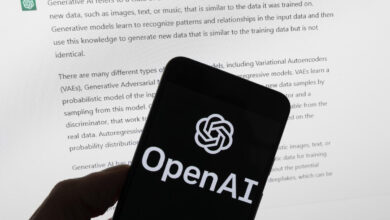The year 2024 is set to be a significant one for elections worldwide, with the European Union holding parliamentary elections this summer and approximately half of European countries preparing for national or regional votes. As this democratic exercise unfolds, the rapid advancement of generative AI has raised questions about its potential impact on elections and the broader information ecosystem. Concerns have emerged about the technology’s capacity to generate diverse content at high speed and its potential use in spreading disinformation.
Microsoft’s Announcement
In light of these developments, Microsoft has announced the expansion of its Content Integrity tools private preview to political parties and campaigns in the European Union, as well as news organizations around the world. The company stated that the tools are designed to help organizations inform voters about the origin of the content they encounter online.
The Content Integrity tools allow organizations to attach secure “Content Credentials” to their original media, providing information about who created or published the content, where and when it was created, whether it was generated by AI, and if the media has been edited or altered since its creation. By supporting the widely adopted Content Credentials standard, Microsoft aims to make these tools accessible and interoperable across platforms.
How Content Integrity Tools Work
Microsoft’s Content Integrity tools consist of three main components. First, there is a web application accessible to political campaigns, news organizations, and election officials, which allows them to add Content Credentials to their content. Second, a private mobile application, developed in partnership with Truepic, enables users to capture secure and authenticated photos, videos, and audio by adding Content Credentials in real-time from their smartphones. Third, a public website is available for fact-checkers and the general public to review images, audio, and video for the presence of Content Credentials.
The Content Credentials standard provides a means to authenticate media and inform users about its provenance. However, it is worth noting that this standard has faced criticism for the relative ease with which metadata can be removed from content. Additionally, there is currently no reliable method to detect AI-generated text, which presents an ongoing challenge in the fight against disinformation.
The first of the three images has the Content Credentials applied. (Source: Microsoft)
Microsoft’s Broader Election Protection Efforts
Microsoft has acknowledged that the Content Integrity tools alone are not a complete solution to the problem of deceptive media in elections. The company has emphasized that these tools are part of a broader defense strategy against the misuse of AI-generated content.
Earlier this year, Microsoft joined the Tech Accord to Combat Deceptive Use of AI along with 20 other companies. This initiative aims to address the misuse of video, audio, and images that alter the appearance, voice, or actions of political candidates and election officials. Microsoft is also working with global political parties to provide support and training on navigating the challenges posed by AI in elections. Additionally, the company offers cybersecurity assistance through its Campaign Success team and AccountGuard program to help protect against nation-state cyberattacks targeting elections.
A Critical Step in Protecting Election Integrity
As the 2024 global elections approach, the expansion of Microsoft’s Content Integrity tools represents a critical step in safeguarding the integrity of democratic processes in the face of evolving technological challenges. By providing political parties, campaigns, and news organizations with the means to authenticate their media and inform voters about the provenance of online content, Microsoft is contributing to the creation of a more transparent and trustworthy information ecosystem.
However, it is important to recognize that the Content Integrity tools are just one piece of the puzzle in combating the potential misuse of generative AI in elections. The ease with which metadata can be removed from content and the current lack of reliable methods to detect AI-generated text underscore the need for ongoing research, collaboration, and vigilance in this area.
Microsoft’s commitment to protecting elections worldwide through initiatives such as the Tech Accord, support for political parties, and cybersecurity assistance demonstrates the company’s recognition of the multifaceted nature of the challenge. As technology continues to advance and the threat landscape evolves, it will be crucial for industry leaders, policymakers, and civil society to work together to develop and implement comprehensive strategies for safeguarding the integrity of democratic processes in the digital age.








